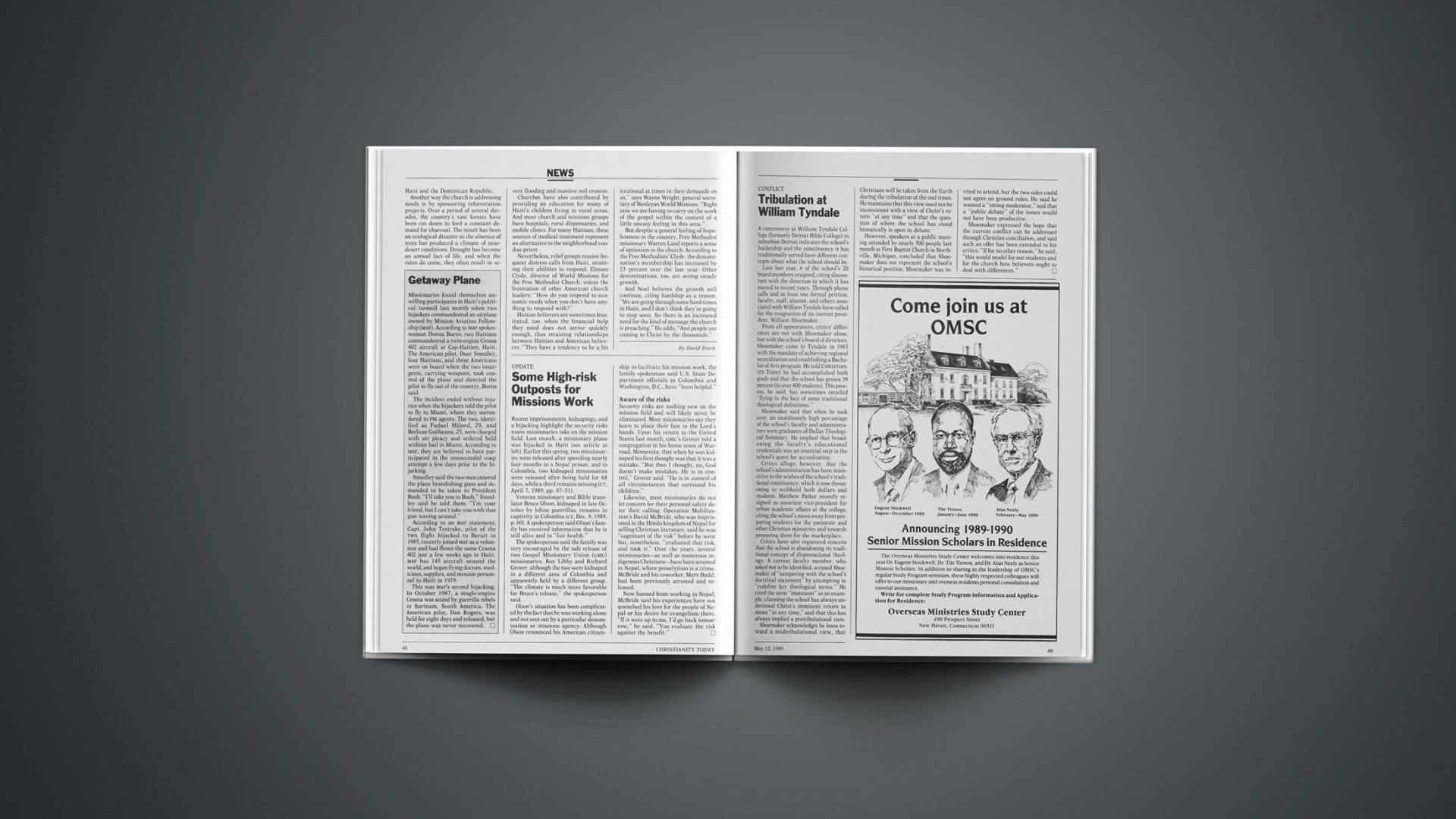In working its way through a busy spring docket, the Supreme Court has acted on two key church-and-state cases. In a case from Illinois, the Court unanimously ruled that the “free exercise” clause of the Constitution applies to sincerely held individual beliefs as well as to beliefs of a religious organization. And in a case from California, the justices denied appeal in a closely watched “clergy malpractice” lawsuit.
By refusing to hear Walter J. Nally and Maria Nally v. Grace Community Church of the Valley, the high court in effect affirmed the California Supreme Court, which had ruled in favor of Grace Community Church and its pastors.
The Court’s action ended nearly a decade of litigation surrounding the suicide of Ken Nally, who had received counseling at the church, pastored by John MacArthur. Nally had also seen psychiatrists and other mental health professionals, but Nally’s parents had charged that the church and its pastors should be held liable for their counseling.
The California Supreme Court last year unanimously ruled that Grace Church complied in every way with the law. The Court said there is no legal duty on the part of unlicensed counselors to make referrals to professionals, even though in this case Grace Church went beyond its legal duty and did so.
Christian Legal Society executive director Sam Ericsson, lead counsel for the church, said that Grace and its pastors “have been thoroughly and completely vindicated” through the court process. Said Ericsson, “The win here is that it has put a shield of protection around unlicensed counselors: pastors, Sunday-school teachers, Boy Scout leaders, youth counselors, drug volunteers, and all the folks who usually do about 95 percent of the counseling in our society because people can’t afford to go to psychiatrists.”
In the Illinois case, Frazee v. Illinois Employment Security, the justices ruled that a state could not deny unemployment benefits to a person who refuses on the basis of personal religious beliefs to work on Sunday. The case was brought by William Frazee, who was denied benefits after refusing to take a job that would have required him to work Sundays. The appeals court ruled Frazee was not entitled to benefits because a belief against working on Sunday was not part of the official tenets of the church where he was a member.
However, the Supreme Court overturned that decision. “We reject the notion that to claim the protection of the ‘free exercise clause,’ one must be responding to the commands of a particular religious organization,” Justice Byron White wrote. He noted that there may be free-exercise claims “so bizarre, so clearly non-religious in motivation” that the state would not be required to honor them. However, he said, “claims by Christians that their religion forbids Sunday work cannot be deemed bizarre or incredible.”
Frazee was defended by the Rutherford Institute, a religious-liberty legal group. Its president, John Whitehead, called the decision “an important victory for the free exercise of religion.” Said Whitehead, “The unanimous nature of this decision should bolster a clear understanding that a state cannot discriminate against people who are sincerely trying to live by their faith in a free country.” Frazee, who now ironically works for the Illinois Department of Employment Security, said he was “thankful for God’s faithfulness” in the case.
In other cases of interest:
• Hospital chaplains. The justices let stand a lower-court ruling that said a public hospital in Iowa did not violate the Constitution by using taxpayers’ money to pay a chaplain. The Court, without comment, refused to hear a case brought by three atheists who complained that having the chaplain on the hospital payroll violated the separation of church and state. The U.S. Eighth Circuit Court of Appeals had ruled that having a chaplain was consistent with Broadlawns Medical Center’s “holistic treatment approach.”
• Church zoning. The Court upheld a Colorado lower court’s decision that a county zoning ordinance did not infringe upon Messiah Baptist Church. The church had bought property in 1974 to construct new buildings; however, the property was in a district that did not allow the construction of church buildings. The church attempted to be exempted from the ordinance, and upon rejection had sued for violation of the free exercise of religion. The Colorado courts ruled that the zoning did not discriminate against the church.










